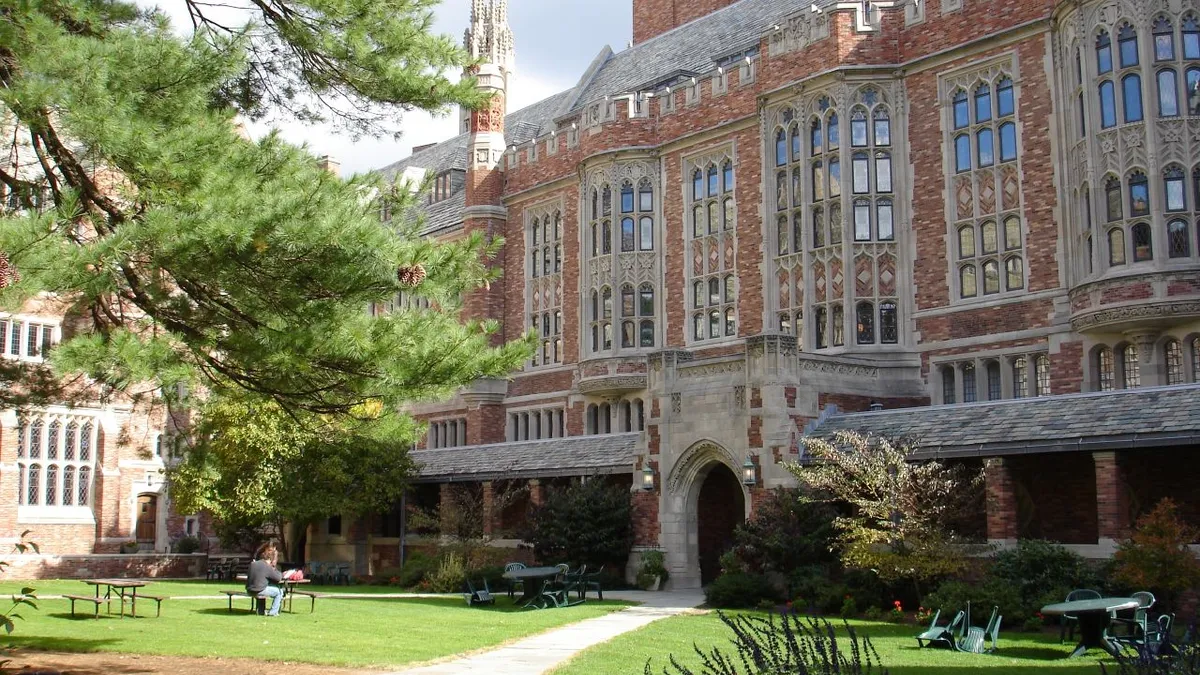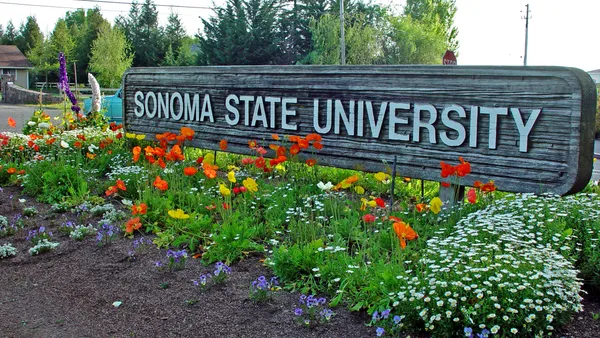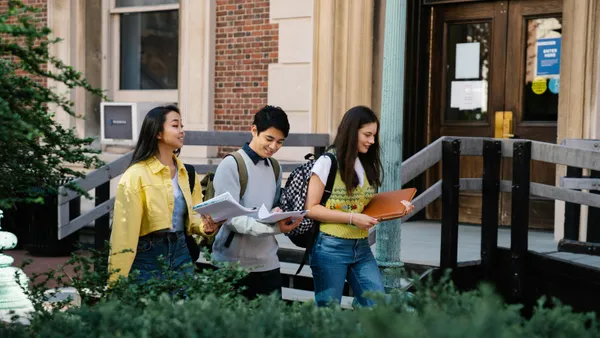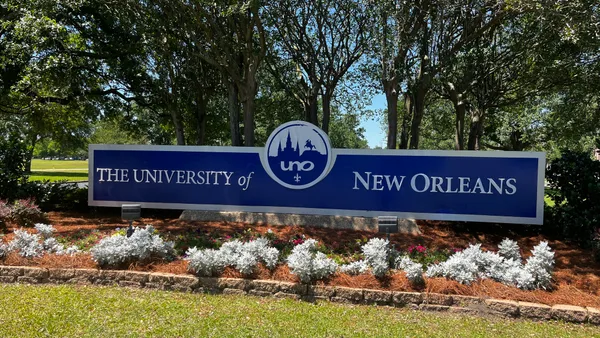Dive Brief:
- Yale and Harvard universities' law schools will no longer participate in U.S. News & World Report’s influential Best Law Schools rankings, saying Wednesday they disincentivize support for low-income students and those entering public-interest careers.
- Yale said Wednesday that administrators have repeatedly called on the publication to reshape its methodology for determining the rankings. But it has failed to do so, the dean of its law school, Heather Gerken, said in a statement. Harvard’s law school dean, John Manning, said in a message that the rankings could mislead prospective students and influence schools to act in ways that harm them.
- U.S. News defended its product in a statement. Eric Gertler, the publication’s executive chair and CEO, said it will continue to fulfill its mission of ensuring prospective students receive “the best and most accurate information” about their law school education.
Dive Insight:
The Ivy League schools’ rejection of the rankings will undoubtedly fuel more debate on their validity — something that has long been called into question.
High-ranking colleges often tout their placements on U.S. News lists. But officials complain privately that the lists play an outsized role in determining where students want to attend college and that some institutions undermine their own missions while trying to climb them.
Attacks against the rankings have intensified more recently with a revelation this year that Columbia University may have provided flawed data for the magazine’s Best Colleges rankings.
U.S. News and World Report dropped Columbia from those 2022 rankings, along with nine other institutions that sent the magazine incorrect information. Columbia also said it would not participate in the current year’s lists until it finished investigating the matter, which a Columbia mathematics professor brought to light. Former Columbia students sued the university, alleging they were harmed by the reporting issues.
Gerken, the Yale Law dean, on Wednesday sharply criticized the rankings, saying that U.S. News “faces a nearly impossible task, ranking 192 law schools with a small set of one-size-fits-all metrics that cannot provide an accurate picture of such varied institutions.”
The dean further said the rankings discourage law schools from backing programs that lead to public-interest positions, which often pay less than other jobs in the legal field.
In calculating student debt loads for the rankings, U.S. News excludes forgiveness programs, which “matter enormously” for these public-interest jobs, Gerken said.
“But the rankings exclude them when calculating debt even though they can entirely erase a student’s loans,” Gerken said. “In short, when law schools devote resources to encouraging students to pursue public interest careers, U.S. News mischaracterizes them as low-employment schools with high debt loads.”
And the rankings bolster law schools that prioritize scholarships for students who score high on tests rather than those who need the money, Gerken said.
Manning, the Harvard law dean, echoed many of Gerken’s arguments. Manning said a recently adopted metric that factors student debt into the rankings risks confusing the public. A school might lower student debts at graduation through generous financial aid, but it could also simply admit more students who are financially strong enough to avoid borrowing to begin with.
“The debt metric gives prospective students no way to tell which is which,” Manning said. “And to the extent the debt metric creates an incentive for schools to admit better resourced students who don’t need to borrow, it risks harming those it is trying to help.”
The law schools’ moves are also significant because they have long occupied top spots on the list. Yale is No. 1 on the rankings, while Harvard is tied for No. 4 with Columbia University’s law school.
Stanford Law School, which holds the No. 2 placement, did not respond to a request for comment Wednesday. A representative from the University of Chicago’s law school, No. 3 on the list, declined to comment.
James Kvaal, the U.S. Department of Education’s top higher ed official, on Twitter applauded the law schools’ decisions, saying the country “needs to move past rankings’ harmful incentives and recognize many forms of college excellence.”














